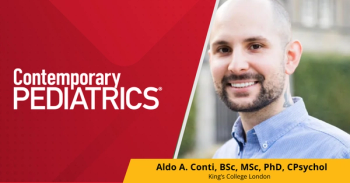
Parents fail to see children as overweight, obese
A new poll shows that most US parents underestimate their child’s risk for being overweight or obese in contrast to data that confirm a national epidemic of obesity.
A new
The poll was conducted by National Public Radio, the Robert Wood Johnson Foundation, and the Harvard School of Public Health in fall 2012 among a nationally representative sample of 1,018 caregivers of children aged 2 to 17 years, including the parents, grandparents, siblings, aunts, uncles, and foster parents. Questions focused on what the children ate, drank, and did the day before the poll.
Data showed that only 15% of the caregivers identified the children as a little or very overweight. National statistics suggest that 32% of children are overweight or even obese. In addition, only 20% of caregivers said they were worried that the children would be obese as adults. Currently, 69% of US adults are overweight, including 36% identified as obese and 6% as extremely obese.
Most caregivers agreed that eating right and keeping active were important for healthy weight, but 44% said it was difficult to have their children eat this way, and 36% acknowledged it was hard to make sure that their children exercised. Nearly all the children consumed foods with high fat and sugar content such as chips, fried food, fast foods, or sweets, and 48% of their caregivers admitted that at times it was all right to take a break from being concerned that these foods could lead to unhealthy weight gain.
Researchers said that caregivers clearly underestimate their children’s risk for being overweight or obese and fail to recognize how that risk could affect them in the future. They suggest that caregivers who are proactive in encouraging better nutrition and more physical activity will improve their children’s health now and as adults.
Newsletter
Access practical, evidence-based guidance to support better care for our youngest patients. Join our email list for the latest clinical updates.






